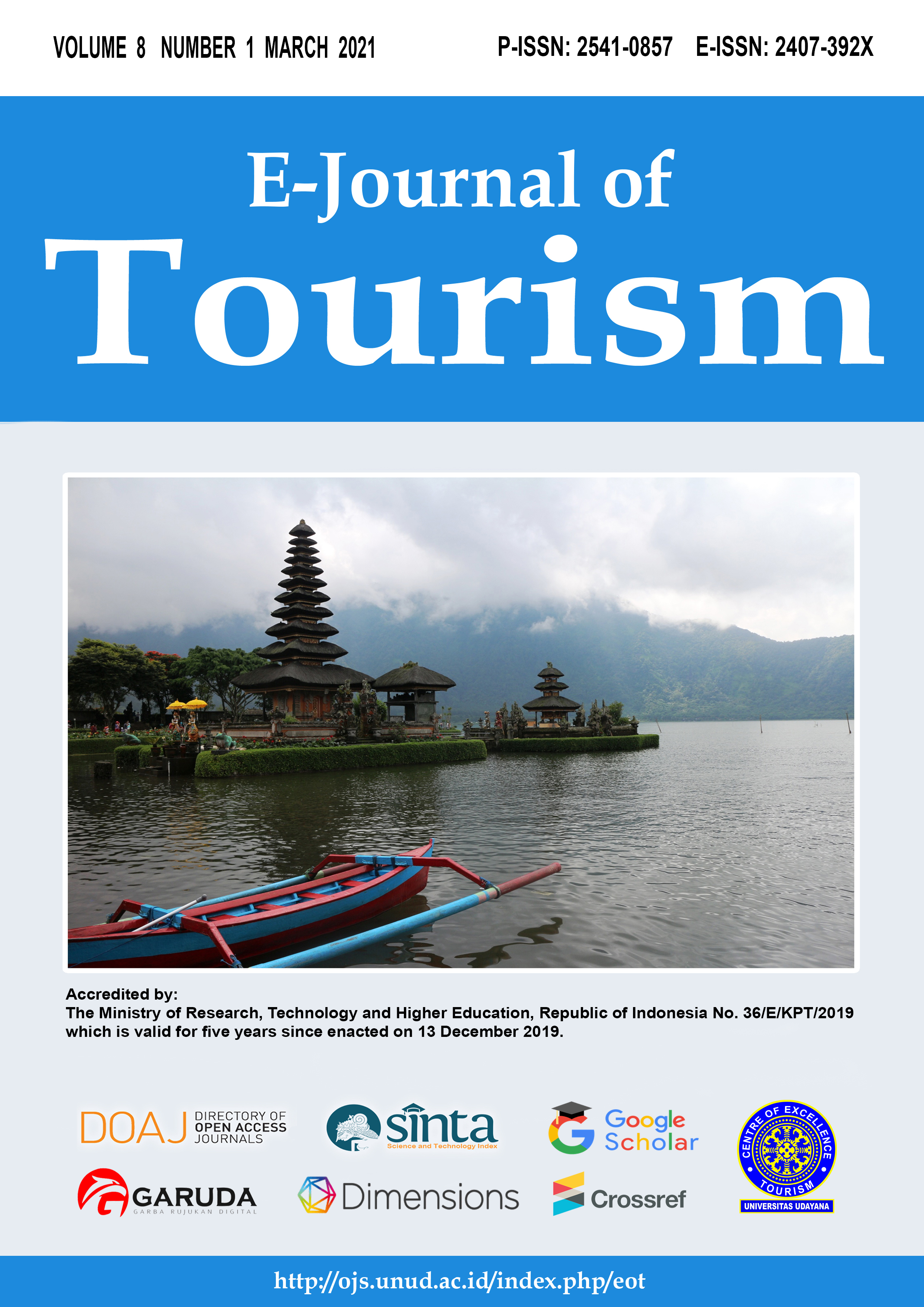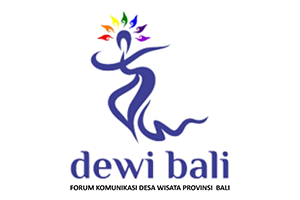Creative Tourism in The Era of New Normality in The Advancement of Culture
Abstract
Within the development of tourism in the era of new normality, especially for cultural tourism activities which do not only place tourists merely as spectators or connoisseurs, creative tourism is the main destination for alternative tourism, which is expected to maximize the potential for creative tourism for cultural advancement. The main objective of this study is to determine the position based on creative tourism to actualize the cultural advancement in the Yogyakarta Special Region and the Borobudur Temple Area. This study uses a qualitative research method with a case study approach with locations in the Yogyakarta Special Region and the Borobudur Temple area, Magelang Regency. Data collection techniques are carried out by observation and literature study, with a qualitative data analysis model based on theories of tourism development. The results of the research study show that the current stage of the development of creative tourism in the era of new normality in the Province of Yogyakarta Special Region and the Borobudur Temple Area, Magelang Regency is in between the consolidation of involvement between the industrial world and the stakeholders and the development of innovative products for cultural advancement.
Downloads
References
Gunawan, I. (2016) Metode Penelitian Kualitatif: Teori dan Praktik. Jakarta: Bumi Aksara.
Lee, J. and Lee, H. (2015) ‘Deriving strategic priority of policies for creative tourism industry in korea using AHP’, Procedia Computer Science, 55, pp. 479–484.
Marques, L. (2012) ‘Boosting potential creative tourism resources: The case of Siby (Mali)’.
Prince, S. (2011) ‘Establishing the connections between the goals of sustainable development and creative tourism’.
Richards, G. (2011) ‘Creativity and Tourism The State of the Art’, Annals of Tourism Research, 38(4), pp. 1225–1253.
Richards, G. and Marques, L. (2012) ‘Exploring creative tourism: Editors introduction’.
Richards, G. and Wilson, J. (2007) Tourism, creativity and development. Routledge.

This work is licensed under a Creative Commons Attribution 4.0 International License.
The copyright of the received article shall be assigned to the journal as the publisher of the journal. The intended copyright includes the right to publish the article in various forms (including reprints). The journal maintains the publishing rights to the published articles.




















